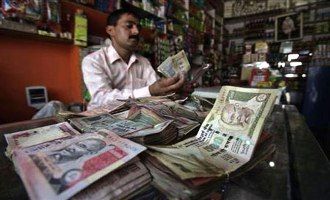 For the convenience of people to pay school fees and municipal taxes and utility bills through an integrated platform, the Reserve Bank on Thursday proposed setting up an "anytime anywhere" bill payment system.
For the convenience of people to pay school fees and municipal taxes and utility bills through an integrated platform, the Reserve Bank on Thursday proposed setting up an "anytime anywhere" bill payment system.
Bill payment is a major component of the retail payment transactions as over 3,080 crore bills amounting to more than Rs 6,00,000 crore are generated each year in the top 20 cities in the country.
Though various forms of payments are accepted, cash and cheque payments continue to be predominant, particularly at the Billers' Own Collection Point. The existing systems do not fully address the needs of the consumers/customers to pay a variety of bills including utility bills, school/university fee, municipal taxes, due to
lack of interoperability in the payment processes as well as lack of access to various modes of electronic payments by a vast majority of customers, the RBI said.
In this backdrop, the RBI has proposed Bharat Bill Payment System (BBPS) with an objective to implement an integrated bill payment system and "offer interoperable and accessible bill payment service to customers through a network of agents, enabling multiple payment modes, and providing instant confirmation of payment.
"Hence, it has been decided that the existing players in the online commerce segment catering to the requirements of bill payments as well as aggregation of payment services (in relation to bill payments) will be a part of BBPS," the RBI's draft guidelines said.
The BBPS, it said will function as a tiered structure for operating the bill payment system with a "single brand image" providing convenience of "anytime anywhere" bill payment.
The centralised bill payments infrastructure will consist of two types of entities – (i) Entity operating the BBPS, which will be the standard setting body and (ii) Bharat Bill Payment Operating Units (BBPOUs), which will be the authorized operational units.
The structure could be further strengthened through an effective establishment of agent network/s by the BBPOUs. The entity seeking approval for operating BBPS should be a section 25 company under the Companies Act 1956.
The criteria for BBPOUs is that the entity should be a company registered under the Companies Act with a net worth of at least Rs 100 crore. Also, the entity must have been incorporated in India.
The guidelines further said "the brand of the BBPS would enjoin the trust and confidence of the customers only if it facilitates an effective, efficient and centralised mechanism for handling customer complaints and grievances".
BBPS will put in place a dispute resolution mechanism to handle disputes arising between system participants. Responsibility of BBPOUs will also be handling customer grievances and disputes for billers/agents/end-customers.
Earlier, the RBI had set up Giro Advisory Group (GAG), under Umesh Bellur, to define a framework that enables the creation of pan-India touch points for bill payments by customers in the country.










